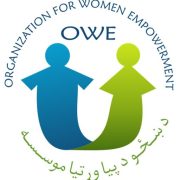Procurement is the acquisition of goods, works or services at the best possible total cost, in the right quantity and quality, at the right time, in the right place for the direct benefit or use by an organization, generally via a contract. Simple procurement may involve nothing more than repeat purchasing. Complex procurement could involve making international tender notices.
Customers are the people who receive supplies. Used interchangeably with users and clients. In OWE that means that a customer can be an office staff receiving new box-files or a teacher receiving a new black-board or the patient receiving treatment and medicine at the clinic.
Goods are interchangeably used with stock, commodities, products, and other terms to refer to all the items that flow through a logistics system.
A supply is the delivery of goods from manufacturer to OWE store or from OWE store to regional and provincial/District offices.
Tender is a process by which one can seek prices and terms for a particular project/procurement (such as purchase toolkits or materials) to be carried out under a contract. The sealed offers themselves, including company information, a project outline, and a price quote, are known as tenders, quotations or bids.
Voucher is in this manual synonymous for receipt, and is often used to refer to receipts used as evidence of, for example, the declaration that a service has been performed or that expenditure has been made.
Procurement Methods
There are various methods of procurement and tendering of goods. The method selected depends upon a number of factors including environmental impact, where reasonably possible, the type of goods being procured; its value and the donor requirements. The overall objective of the procurements and tendering processes is to procure high quality goods as economically and transparently as possible.
Depending on donor requirements some procurement methods should be through international competitions, others there is sufficient to make local competition.
As a general principle OWE, whenever possible and where sufficient competitive suppliers, delivery time and quality can be ensured, favours local procured goods and services.
Once a demand has been approved, funding assured and specifications determined the Procurement unit/PO Logistic Officer must decide on a method of procurement, or modality by which to solicit offers for the required goods. Depending on the nature, size and donor requirements the methods include:
- Request for Quotation;
- Invitation to Bid;
- Request for Proposal;
- Local Shopping; and
- Direct (on spot) Procurement.
The three first methods are also known as tendering.

